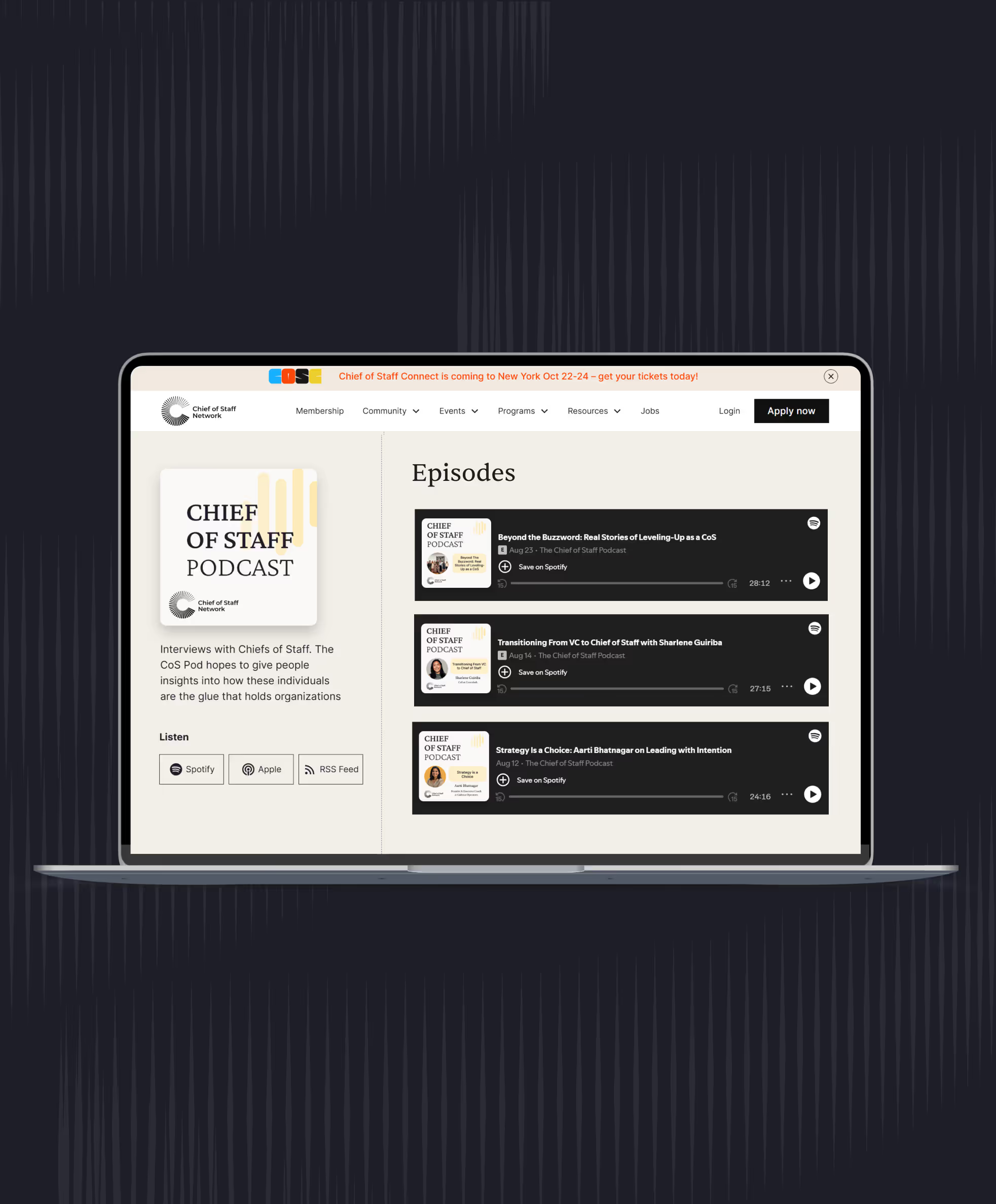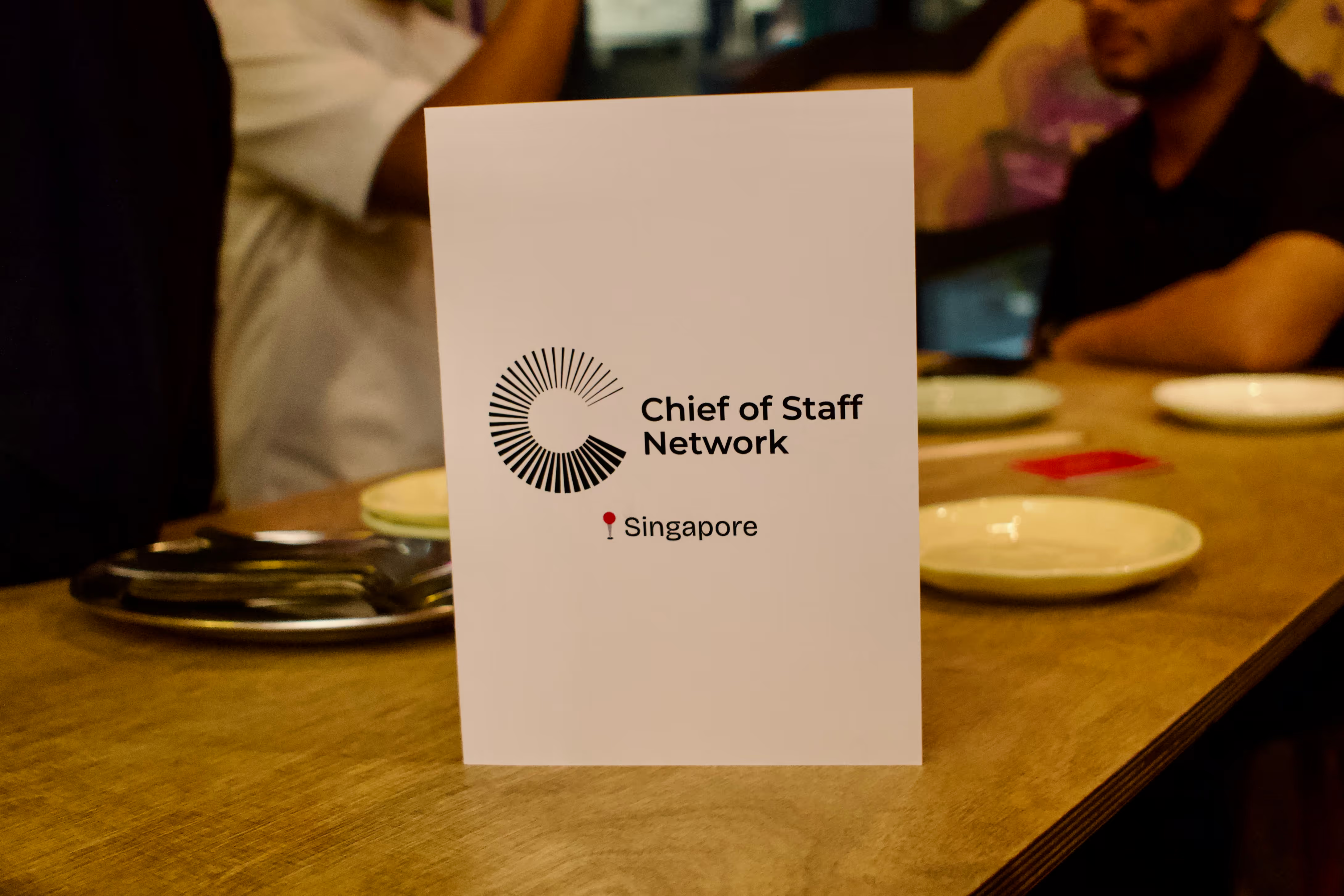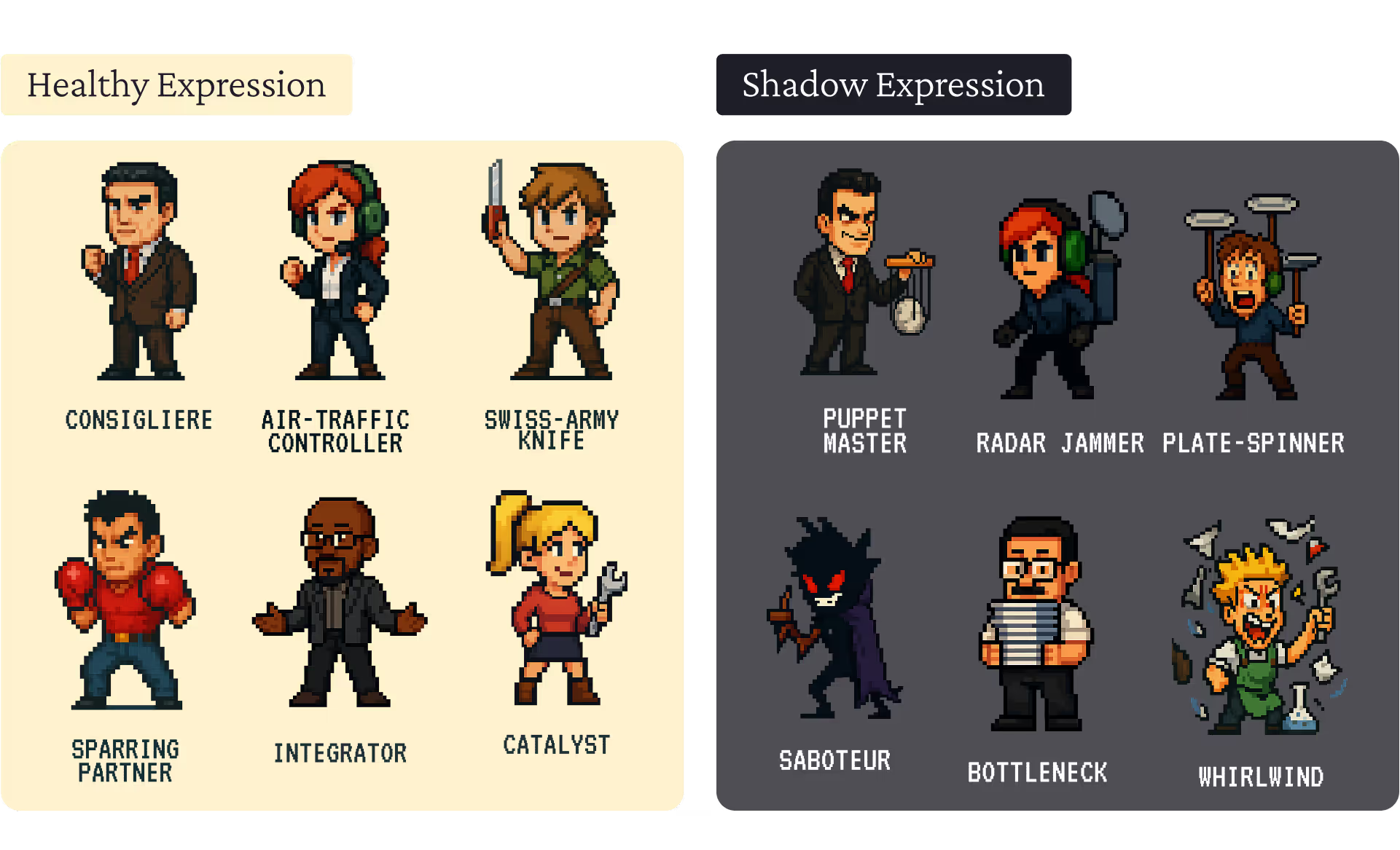In this Chief of Staff Network member spotlight, you will learn from Ethan Senack, the Chief of Staff at ISKME. You will learn how Ethan leveraged a trial role with his employer to become Chief of Staff full-time, his views on the importance of feedback, and what persistent things hover at the bottom of his to-do list.
If you’re interested in Ethan’s insights and would like to speak with him directly, join the Chief of Staff Network today.
How did you get into your current role?
Over the years, I've done a lot of coalition and organizing work. When I was feeling ready to seek out my next role, I started by having conversations with coalition partners about what their needs were, what gaps they were grappling with, and their perspective on the same questions within the community as a whole.
After a number of these open-ended discussions and conference hallway conversations, I connected with my current employer, and we brainstormed around how my experience could help her organization level up. We did one trial year with me in a director-level generalist role. When we had built some trust and I had demonstrated capacity to work on our systems at a deeper level, I transitioned into a CoS role, and I’ve been in the role for 3 years now.
What advice would you give to someone looking for a CoS role?
Besides all of the great guidance out there on networking and cultivating relationships, the one piece of advice I’d give is that the CoS role can completely vary based on your principal. It's incredibly important to get to know the CEO or whomever you report to because, ultimately, your role’s structure will be oriented around how it can best serve them - and the boundaries of your role will depend on their trust and preferences.
What were some of the key learnings or breakthroughs you had while working as a CoS?
When it comes to succeeding as a CoS, I think the single most effective thing you can do is demonstrate the value you add to any given conversation. This often means asking good questions - and that has very little to do with the content or area of expertise, but rather with helping people consider things they may have missed, manifest their best work, and communicate it effectively.
It's the superpower of a chief of staff - to be able to drop into a meeting and know when to speak up or not, whether you’re flagging a missed consideration, connecting a stray dot, or highlighting an effective or impactful new approach. If you're able to do that, you'll win the team over in no time, and they'll loop you in proactively, which saves a ton of time down the road.
What are you most focused on right now?
Right now, my role is focused on 4 particular buckets of work (besides the ever-present ‘additional responsibilities as required’ bucket!):
Supporting the CEO and the leadership team.
As we've grown and positioned ourselves for greater scalability, there's just a lot more work in the backlog, and our CEO and VPs have had to level up themselves. I'm taking a more direct role supporting and facilitating their strategic conversations, prioritization, and staff management.
Building a healthy team culture.
Good work requires good workplaces. I worked with our team to articulate shared norms and values - and now I'm working to build practice around them, drive accountability and feedback, and help our team members embody them in their day-to-day lives. This also includes making our organization more diverse, our hiring more inclusive, our structures more equitable.
Drive alignment and impact orientation.
A small organization can rely on implicit understanding and values, but as you grow, misalignment will become a feature if there aren't intentional steps to build shared understanding between teams and team members. I work with our leadership team to communicate our strategy, articulate goals, overcome obstacles, and back it all up with processes and workflows that reinforce that strategy.
Represent the organization externally.
We're part of a wide community of organizations operating in the same space, so it's important for us to stay connected with peers, partners, and even competitors at times. I coordinate with a variety of coalitions and groups, representing our team and reporting back opportunities and important context as it comes up. This also brings in communications work - while we don't have a full-time comms person, I'm conducting outreach to the media, our lists, and more.
What have been the most challenging and rewarding parts of your CoS experience?
As you might expect, I'd say that the most challenging and the most rewarding part of my role is one and the same: developing our team, coaching, and supporting people through change are the best part of my work and simultaneously the most draining. It requires deep investment and significant time - modeling desired behaviors, building structures to encourage practice, holding people accountable - but it's incredibly rewarding to see someone make a more intentional, strategic decision, or use a skill organically that you've worked on with them.
The flip side is that this requires enormous amounts of energy, patience, and empathy. It's frustrating, when you've had the same feedback conversation a number of times, or when you’ve spent time building a great tool that no one uses. But that usually means you need to double down, consider where they're coming from, and adjust your approach.
At the end of the day, change starts with people, it requires people - there's no way around it. And that's why it's both the most challenging and rewarding part of my role.
What is the oddest task / project you've ever worked on?
I started out as a student organizer, so it's safe to say there were some odd projects and campaigns I worked on back in the day. There was a get-out-the-vote goat mascot at one point, a monopoly-man mascot representing textbook publishers, and more.
If you could wave a magic wand, with 3 wishes for your role, what would they be?
Not to try to game the system, but I'd ask for another hundred wishes.
I think it's a fair ask - none of the things I'd love to magically fix would be so large that they should count for an entire wish. There are so many threads and loose ends that I've pulled on over the years that aren't mission-critical or that shouldn't be a priority, but hover in my back-brain or the bottom of my to-do list. There's that idea for an onboarding ambassador program that I wanted to get going, or that google drive management system I wanted to roll out to the team. There's that blog post that I started but never got across the finish line...
Surely I wouldn't have to use a whole wish for each of those things?
What’s something that you’re sneaky good at or that people wouldn’t expect about you?
I'm uncannily quick at picking up new tactile skills outside of my job. Given how cerebral the role can be, I tend to seek out physical hobbies - from sports to more intricate things like wood carving, resin-casting, cake decorating, and more. The pandemic was a boon in this department, and my closet space can attest to the wide range of skills I've picked up over the years.
What’s the best professional advice that you’ve ever been given?
I don't like the phrasing of it, but the best advice I've been given is that feedback is a gift. Not in a patronizing or condescending way, but it's just a reality that people can't improve if they don't know there's something to improve.
There needs to be structure and space to give that feedback - it's a hard thing to do - but the biggest disservice we do to each other is to not say when something needs to be done differently. The Radical Candor framework has some interesting concepts around building a culture of feedback, and I've used Nonviolent Communication frameworks as a training tool before, particularly in places where feedback isn't yet a norm. It’s the most crucial part of building a healthy organization - one where you can learn, grow, fail fast, and iterate to be the most impactful and effective version of yourselves possible.
If you’re interested in Ethan’s insights and would like to speak with him directly, join the Chief of Staff Network today.






.avif)
.avif)








